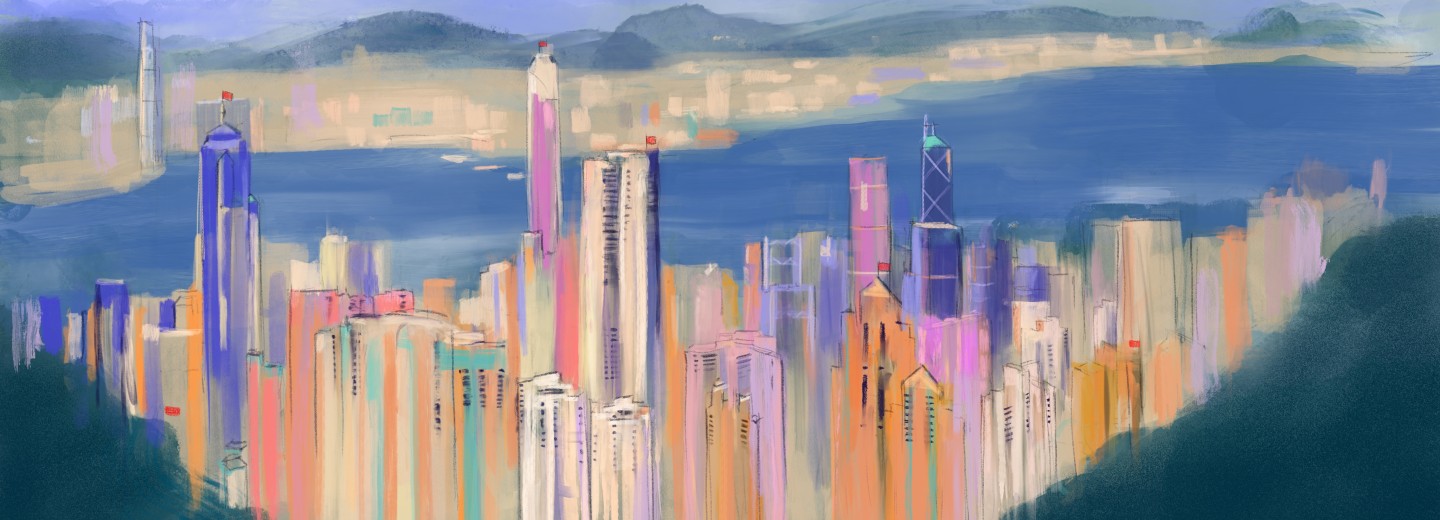Hong Kong anniversary
So - Hong Kong has passed a 25th anniversary. Speeches have been made. Long articles have been written and opinions expressed. But what was it all about? What was the anniversary? Views of the event depend on who answers these questions.
Handover
To most western people, Britain ‘handed over’ its 150-year-old colony of Hong Kong, Asia’s World City and Jewel of the Orient, to The People’s Republic of China on 1 July 1997. I was there, in pouring rain, watching a tearful ex-Governor Patten solemnly fold the Union Jack and put it aside at the end of a solemn ceremony. He and Prince Charles then boarded the Royal Yacht Britannia and sailed slowly out of Hong Kong harbour.
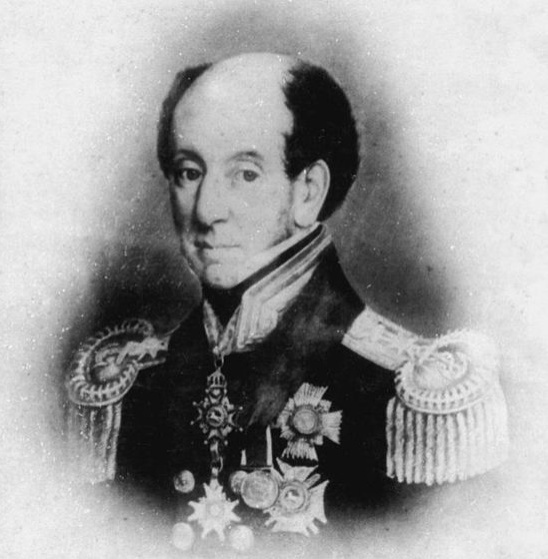
That harbour was claimed for Britain by Lieutenant-Commander, Gordon Bremer, with the words:
We landed on Monday, the 25th of January 1841, at fifteen minutes past eight A. M., and being the bona fide "first possessors", Her Majesty's health was drunk, with three cheers, on Possession Mount.
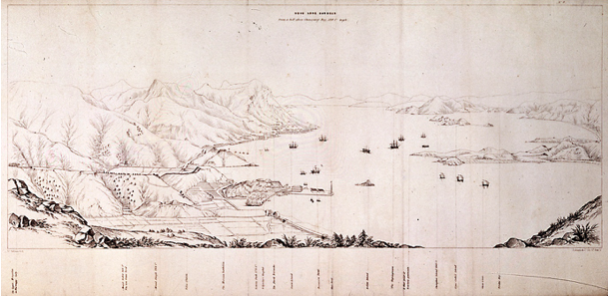
Britain had recently defeated China in two wars that it had begun to establish its right to sell opium in China. The vital supply of tea to Britain depended on the sale of opium to the Chinese. After the secession of Hong Kong Island and its harbour, the Chinese leased a small part of its mainland territory (Kowloon) to Britain. The lease expired on 30th June 1997. Apart from a few years under Japanese conquerors in World War II, Hong Kong remained a British colony with British law, institutions, and governance. The British believe that Hong Kong’s success was due to these characteristics. But they reluctantly agreed to ‘hand over’ the Territory to the People’s Republic, under the terms of the Kowloon lease, on 1 July 1997.
Re-Unification
China lost the two ‘Opium’ wars with Britain because its final dynasty, the Qing, was out of date, insular and corrupt. The Qing had ruled Imperial China since 1636. The country had a weak army, poor weaponry and lacked effective leadership. In 1912, revolutionaries deposed the Qing and declared China a republic. However, internal struggles, an invasion by Japan, and World War II, meant that there was no stable central government until President Mao Tse Tung established the People’s Republic of China on 1 October 1947.
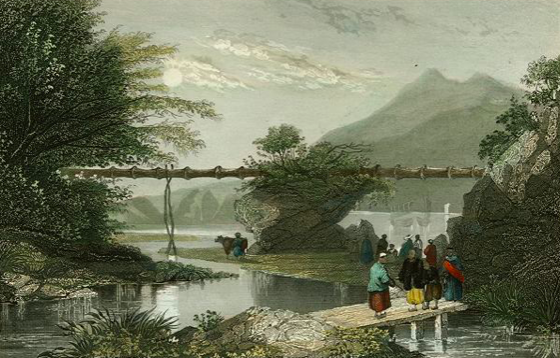
Far from being ‘bona fide first possessors’, the British, as with all their overseas territories, took the land they wanted from those who lived there. The so-called ‘treaties’ signed by China were unequal and imposed. Chinese people had prospered in Hong Kong for millennia but were forced to accept an occupying power. It was their hard work, discipline, and diligence, that made Hong Kong so successful.
1st July 1997 marked the joyful re-unification of stolen territory, and people, with the Motherland.
It’s all in the words
Few, on either side, disagree with the facts. Britain did ‘invade’ China. It did sell opium to pay for its tea. Yes, Hong Kong was always Chinese territory. But China ceded it to Britain permanently to gain peace.
China respected the treaty and never tried to take back Hong Kong. It even supplied water to Hong Kong during some of the most difficult years. – and still does. Britain ran Hong Kong in its own way, with its own people, laws, and standards. Democracy was never an option but (most of) the people prospered.
Commentary from Western media
How you describe Hong Kong’s transition after 1997, determines how you view it. Western media, prone to gloom, is in no doubt:
It is clear that, halfway through the 50-year period when freedoms were meant to endure, Beijing has completely reneged on assurances given by Deng Xiaoping, the Chinese former leader who first proposed “one country two systems.”’, the Financial Times bemoans. (This was the Joint Declaration signed between Britain and China in 1984 to agree how China would run Hong Kong.) It goes on: ‘If Beijing, in its zeal for control, ends up smothering what makes Hong Kong unique to a greater extent than it already has, then it will have forsaken something irreplaceable.
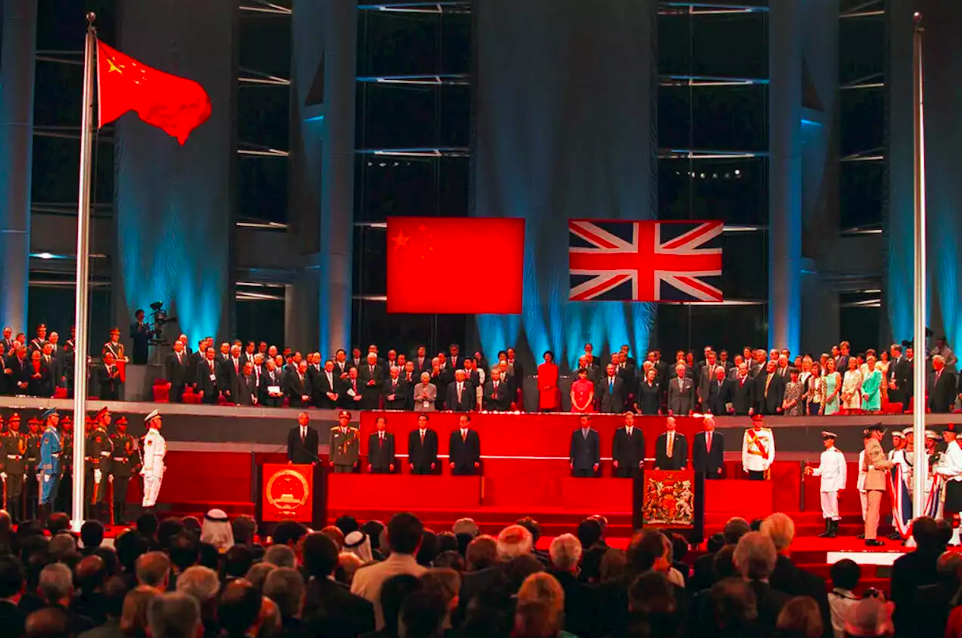
Under the headline ‘Hong Kong's thuggish new leader epitomises its descent into a police state’, Daily Telegraph writer, Benedict Rogers, co-founder and Chief Executive of Hong Kong Watch, continues:
Hong Kong’s new chief executive, John Lee, will be sworn in on July 1st, precisely 25 years after the handover. Lee embodies Hong Kong’s transformation from one of Asia’s freest, most open cities to one of its most repressive police states.
CNN quotes UK Prime Minister, Boris Johnson:
But on the 25th anniversary of the handover, we simply cannot avoid the fact that for some time now, Beijing has been failing to comply with its obligations. It's a state of affairs that threatens both the rights and freedoms of Hong Kongers and the continued progress and prosperity of their home.
The Times writes:
Britain is right to denounce what is happening to a territory that once held extraordinary promise, not just for China but for democracy in east Asia.
To be fair, The Times also ran a balanced article from a resident, who writes:
Unlike Jumbo, (Hong Kong’s late, iconic, floating restaurant that recently sank in the South China Sea) however, Hong Kong is not dead — contrary to what people who don’t know Hong Kong keep casually pronouncing, as if Hongkongers are just going to give up their beliefs and everything they love overnight.
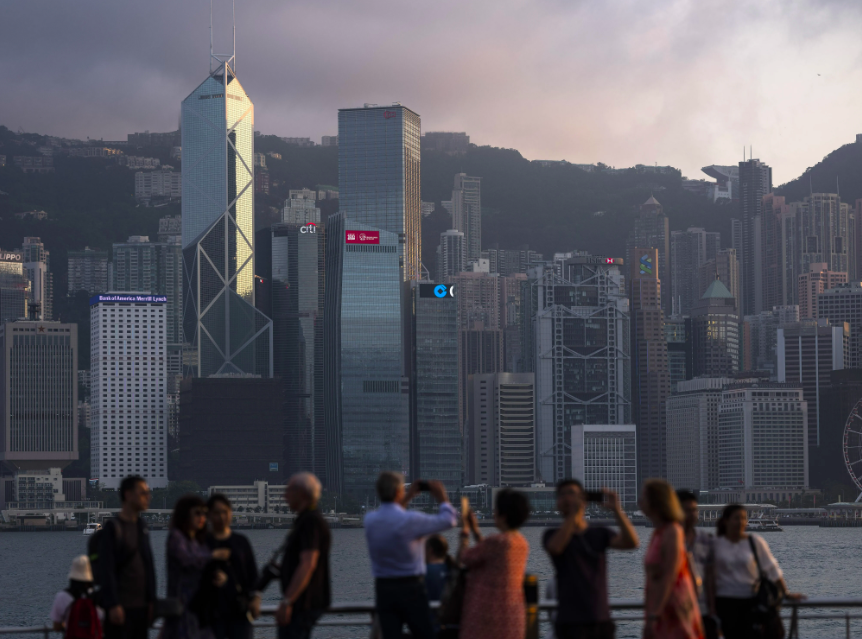
Commentary from Hong Kong
The views of people who live and work in Hong Kong are different from those of overseas Western media. The South China Morning Post, Hong Kong’s leading English language newspaper since 1903, notes:
Chinese President Xi Jinping’s major speech in Hong Kong was directed not just at the city’s residents but also the international community, especially given it was his first trip outside mainland China since 2020, analysts said. He was telling the wider world that contrary to the dire predictions by critics, Hong Kong’s unique status, including its common law system, would be maintained under the “one country, two systems” formula. Lau Siu-kai, vice-president of semi-official think tank the Chinese Association of Hong Kong and Macau Studies, said it was the first time a state leader had openly endorsed the common law system in Hong Kong.
The Post quotes President Xi:
Today, I wish to highlight once more that the policy of one country, two systems, having been tested and proved time and again, meets the fundamental interests of the country and the Chinese nation and those of Hong Kong and Macau. There is no reason to change such a good system. And it must be adhered to over the long run
What is the difference?
There are two clauses in the Joint Declaration that lie at the heart of this dispute. The first – as quoted by all westerners - reads:
(5) The current social and economic systems in Hong Kong will remain unchanged, and so will the lifestyle. Rights and freedoms, including those of the person, of speech, of the press, of assembly, of association, of travel, of movement, of correspondence, of strike, of choice of occupation, of academic research and of religious belief will be ensured by law in the Hong Kong Special Administrative Region. Private property, ownership of enterprises, legitimate right of inheritance and foreign investment will be protected by law.
Westerners believe this entitles the Hong Kong public to protest at any time in any way. (It is interesting to note, as an example, that the storming of the Capitol in the USA by Trump supporters was roundly condemned by Western media. Arrests and imprisonment have followed in the USA. An identical storming of the Government building in Hong Kong by protesters was applauded in the West and – as in the USA – has led to arrests and imprisonment.)
However, the Chinese government quotes another clause in the Joint Declaration:
(2) The Hong Kong Special Administrative Region will be directly under the authority of the Central People's Government of the People's Republic of China. The Hong Kong Special Administrative Region will enjoy a high degree of autonomy, except in foreign and defence affairs which are the responsibilities of the Central People's Government.
The Chinese government interprets this to mean that Hong Kong cannot disrupt the foreign or defence affairs of China. By pushing for independence, creating havoc in Hong Kong and causing damage and disruption to the city, protestors were interfering with China’s sovereignty in its own country and thereby causing a security threat.
Conclusions
Democracy has not died in Hong Kong. It never existed. Freedoms are constrained in all countries by the need to maintain social order and manage conflicting views peacefully. The Chinese approach to Hong Kong is consistent with any responsible government’s approach to its citizens and with the Joint Declaration signed by Britain and China in 1984.
The facts are clear. People believe what they want to believe.
Worked on the article:

Wanlikhang


